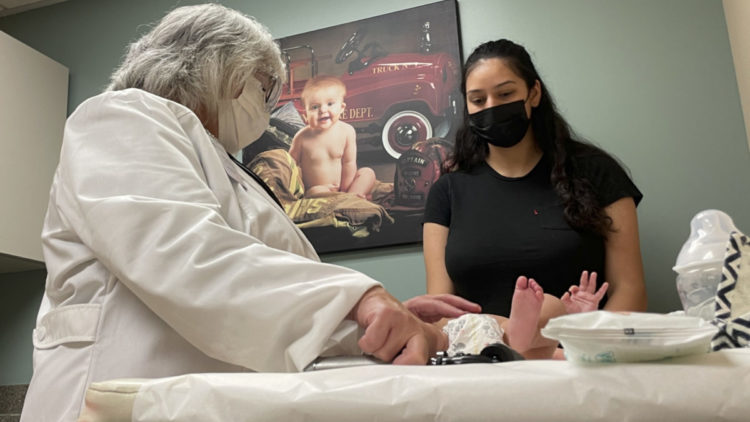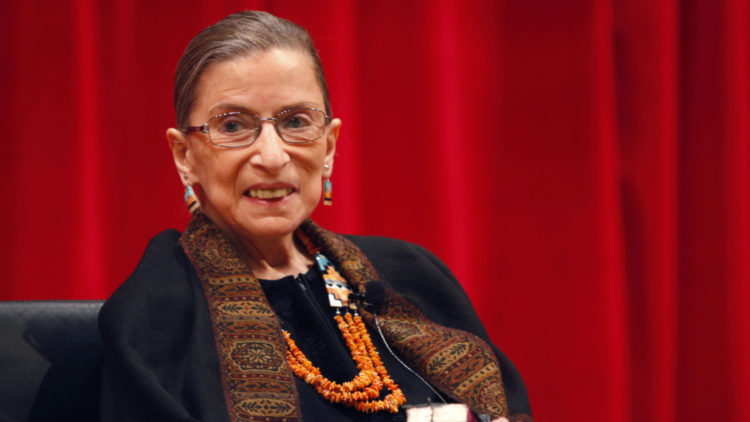I’ve always preferred female doctors and it turns out science is on my side

I have always preferred seeing female physicians. From a young age, I remember having a strong preference for the “girl” doctor, and these days, I continue to seek out female practitioners whenever possible.
Although the field of medicine is a historically male-dominated one, the tide is turning. For the first time in history, women now make up the majority of medical students in the United States. According to 2019 data from the Association of American Medical Colleges, women comprise 50.5% of all medical school students in the United States, which is up from 46.9% in 2015.
Although this is great news, people’s attitudes toward women in medicine may need some time to catch up. When I recently saw a new female physician, I made reference to my previous doctor. My new doctor expressed surprise that my old doctor was also a woman, asking, “Oh, it’s a ‘she?'” At first, I thought it was odd that even a female doctor would be surprised about another female doctor, but I realized that as an insider, she’s probably as acutely aware as anyone that most of her colleagues are male.
If you ask me to pinpoint why I prefer female doctors, I’d say that much of my preference comes down to relatability. As a woman, I usually find that I more easily connect to and communicate with women. Most of my close friends are women, and a good relationship with a doctor depends a lot on your interpersonal rapport and a high level of trust. I feel that women doctors are more likely to listen closely to my concerns and to take them seriously.
About a decade ago, I saw my male family doctor for some strange symptoms. For about a week, I had been experiencing a high fever that always spiked at night. Besides the fever, I didn’t really have any symptoms that would usually accompany a common cold, flu or another virus. The doctor was dismissive of my complaints and instructed me to simply take Ibuprofen and wait it out. After another week, I called to let him know that the fever was persisting, and he again did not seem concerned and declined to take any further action.
At this point, I decided to try a new doctor, and this time I chose a female. She was alarmed that another doctor had been so dismissive of a persistent fever as high as the one I was experiencing. She ordered bloodwork right away and asked a lot of questions to pinpoint what might be the cause.
Although she was never able to nail down exactly what was the cause of my symptoms, she felt confident that I had some type of infection and prescribed heavy-duty antibiotics. She suggested that I may have had a UTI that quickly spread to my kidneys or another part of my body, which could quickly become dangerous if left untreated.
She sent me home with strict instructions to go to the emergency room if my fever did not resolve within a few days of the antibiotic treatment. She explained that a prolonged and uncontrolled fever itself could lead to serious complications, including a seizure or loss of consciousness, leading me to believe the original doctor had been negligent and irresponsible in dismissing my concerns. Luckily, I quickly recovered with her treatment.
Although it would not be fair to attribute the first doctor’s attitude to his gender, I can’t help but think that in general, female doctors take a more vigilant and cautious approach to medicine.
As it turns out, there is some evidence to back up my feelings that female doctors offer a different — and possibly more effective — style of care. A 2018 study found that female heart attack patients who were treated by female emergency room physicians were two to three times more likely to survive than those patients who were cared for by their male counterparts. The study, which was published in Proceedings of the National Academy of Sciences of the United States of America, analyzed data from more than 500,000 male and female heart attack patients in Florida emergency rooms between 1991 and 2010. Because heart attack symptoms present differently in women, researchers theorized that female doctors may be better able to spot those symptoms. That theory seems to bear out.
Medical care is so personal, and I have found it beneficial to interact with female physicians that likely have a personal experience similar to my own. When it comes to discussing fertility issues, the role of hormones and all those health-related topics that are unique to women, it helps to know that the doctor I’m working with has not only studied them in the abstract but has a personal perspective to draw on as well.
Another study published in JAMA Internal Medicine found that older people with female doctors generally have lower mortality rates and hospital readmission rates. Although the study only found a slight difference in mortality rates, it points to what may be significant differences in the ways women and men practice medicine.
“Studies have found that female physicians are a little more likely to adhere to clinical guidelines in care and practice more evidence-based medicine,” Dr. Kirby Parker Jones, vice-chair of education for the Department of Obstetrics/Gynecology at the University of Utah, told The Scope. “Women tend to use more patient-centered communication and provide more psychosocial counseling to their patients than males. It’s hard to know exactly what is the difference in practice that accounts for this small difference in patient outcomes.”
Those findings are consistent with my experience. The male doctor seemed to be more reliant on his instinct that what I was describing was not likely to be serious, while the female doctor was more inclined to go “by the book” and err on the side of caution. When lives are at stake, evidence-based medicine sounds a lot safer than “hunches” to me. I also felt that the female doctor in that instance was more closely listening to my concerns and expressed a genuine desire to “get to the bottom” of my symptoms.
Parker Jones’ insight also reinforces what women know to be true from our own experience: In order to be successful and be taken seriously, especially in a particularly male-dominated space, we have to work twice as hard as men. To make it in their profession, female doctors have had to study, learn and perform at a level that can only result in improved performance, which helps to reassure me about their competence.
Because women are the underdogs in medicine — as they are in so many facets of life — it also further encourages me to support them in solidarity. What’s more, I believe that representation matters. When women are better represented in medicine, law, politics, business and all of the fields that shape our daily lives, their valuable and unique perspective will help women’s interests to be prioritized, resulting in a more just, equitable and diverse experience for us all.







